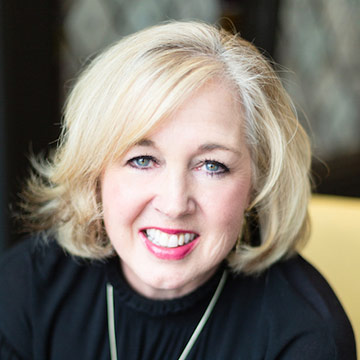“Prayer does not manipulate God. It aligns us with God.”1
I was listening to Priscilla Shirer’s teaching on Elijah and was struck by this statement. How can I be aligned with God’s will? How can I know He is listening? How do I know He is working?
And then her words struck me. I don’t come to the Lord with my list of requests, although He loves for us to express our need for His intervention. He doesn’t expect me to come to Him so He can know me better. I go to the Lord so I can know Him better.
As a leader, how is your personal prayer life? How do you lead others to develop a life of prayer? How do you approach a Holy God with faith and an expectant heart?
I’ve realized I’ve asked a lot of questions in the first few paragraphs, but you’ve probably stumbled on this post looking for some answers. If there’s one spiritual discipline that we desperately need to help women practice, it’s prayer. It’s our communication with the Creator. It’s building intimacy with our Redeemer. And if we want to be more like Jesus, we must pray and teach others to pray.
Luke 11:1 shows us that Jesus was not only a model for prayer, but He modeled how to pray for His disciples. So, if we want to learn how to lead women to pray, we must also model a personal prayer life and then be intentional in the ways we teach them about prayer. Here are a few practical suggestions for teaching women to pray:
First, teach them the discipline of prayer. We can pray throughout the day, and we should “pray constantly” (CSB) as 1 Thess. 5:17 instructs, but we should also make prayer a priority of our day. Help women understand that Bible study and personal devotion time also include focused prayer. Help women learn the discipline of prayer by keeping a prayer journal, noting the date when they began praying for various things and celebrating the days when answers to those prayers are evident.
Just as exercise strengthens our muscles, the exercise of a devoted prayer life will strengthen our faith. Women will see God at work in their daily lives, and they will experience the wonderful ways God answers prayers.
Second, teach women the practice of prayer by practicing prayer. I have tried learning a little Spanish over the years, but I’m not fluent in the language. Yet, when I’ve visited Spanish-speaking countries, I’ve been forced to listen more intently to unfamiliar words. I’ve struggled to speak words in Spanish because I know my pronunciation might not be correct or that I will embarrass myself with the limited knowledge I have of a foreign language. But, if I were to practice Spanish, both by reading it and speaking it, I would become more fluent.
Prayer is very similar. Women may not feel “fluent” in their prayer life, but through practice, both in praying God’s Word and speaking their requests out loud, women will develop a new comfort level of praying. The best way to learn how to pray is to simply pray. As author Andrew Murray wrote, “Reading a book about prayer, listening to lectures and talking about it is very good, but it will not teach you to pray. You get nothing without exercise, without practice. I might listen to a professor of music for a year playing the most beautiful music, but that won’t teach me to play.”2
Third, helping women pray together will develop empathy and community with one another. One of the primary reasons I love studying God’s Word together with other women is that it opens the door for groups to share their lives with one another. And while I’m not against coed groups, I have found that when women are with other women, there tends to be more transparency and vulnerability to share their needs with one another. Whether someone is going through a health crisis, a prodigal child, or difficulty with a friendship, I have seen women rally around one another and cry out to the Lord on behalf of their sisters in Christ. It is one of the most beautiful pictures of the body of Christ—when one is hurting and others are around to lift them up.
Of course, leaders must set boundaries for prayer requests so they don’t become a means of gossip. For instance, remind members in your group that requests should be voiced in confidence. Encourage them to share requests through the lens of how God wants to personally use them in the situation. For example, when someone wants to pray for someone who is struggling with sin, direct them to express the request as, “Please help me be a good friend to this person who is struggling. I’m praying the Lord will give me an opportunity to encourage her and hold her accountable in this area of her life.”
Finally, I want to challenge you as a leader to teach women to pray “big” prayers. If God is the God of the impossible, do we ask Him for the impossible? I believe God is honored when we approach Him boldly and with confidence as Hebrews 4:16 challenges us. If God is who He says He is, then we can ask Him to do big things. Spiritual awakenings have happened in history because groups gathered and prayed for them. God has freed people from addictions. He has restored marriages. He has provided in times of need. Those are big answers to prayer. Even so, what is something impossible you are praying for today? For example, instead of praying for someone who has cancer, what if you prayed for a cure for cancer? What if you prayed for the evangelization of an entire country instead of praying for one missionary? Of course, the individual prayers for people are important, but for today, what impossible things are you praying? Let’s pray the words of Jesus in Matthew 19:26, “With man this is impossible, but with God all things are possible” (CSB).
If you want to learn more about leading others to pray, I encourage you to watch a recent You Lead webinar on this topic. You can watch it here.

Kelly D. King is the Manager of Magazines/Devotional Publishing and Women’s Ministry Training for Lifeway Christian Resources. She is the author of Ministry to Women: The Essential Guide for Leading Women in the Local Church. You can hear Kelly at Lifeway’s You Lead events that are held in several cities around the country or listen to her co-host the Marked Podcast with Elizabeth Hyndman.
1. Priscilla Shirer, Elijah (Nashville: Lifeway Press, 2020), video.
2. Andrew Murray, The Spiritual Life (Philadelphia: George W. Jacobs & Company, 1897), reprint, (Apollo, PA: Ichthus Publications, 2015), 71.

